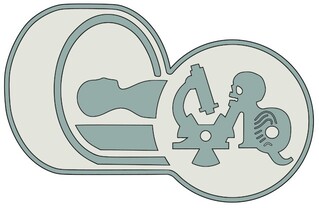Healthcare technology solutions have been rapidly advancing in recent years, with virtual reality (VR) emerging as a powerful tool in various medical fields. One area where VR shows immense potential is in the training of medical device operators and users. The realistic and immersive nature of VR simulations can provide trainees with hands-on experience in a safe and controlled environment, allowing them to practice and perfect their skills before working with actual patients.
Medical device training is crucial for ensuring that healthcare professionals can effectively and safely use complex equipment. In traditional training methods, such as manuals and classroom settings, trainees may not have the opportunity to practice using the devices in realistic scenarios. This can result in errors and inefficiencies when it comes to operating the equipment in real-life situations.
VR technology offers an innovative solution to this issue by providing trainees with interactive and engaging simulations. Trainees can use VR headsets to enter virtual environments that accurately replicate the operation of medical devices. They can practice using the devices, troubleshoot problems, and learn proper techniques in a realistic and hands-on manner. This hands-on experience can help build muscle memory and improve proficiency, ultimately leading to better patient outcomes.
One of the key benefits of VR training in medical device operations is the ability to customize simulations to meet specific training needs. Trainees can practice using a wide range of medical devices, from robotic surgery systems to diagnostic equipment, in a variety of scenarios. This flexibility allows healthcare organizations to tailor training programs to the unique needs of their staff, ensuring that trainees receive relevant and effective training.
Moreover, VR simulations can also provide valuable feedback to trainees. Virtual environments can track trainee performance, identify areas for improvement, and offer guidance on best practices. This real-time feedback can help trainees understand their strengths and weaknesses, allowing them to focus on areas that need improvement and ultimately become more proficient in using medical devices.
In addition to improving training outcomes, VR technology can also help reduce training costs and increase efficiency. Traditional training methods can be time-consuming and expensive, requiring staff to travel to off-site training facilities and disrupting their workflow. With VR simulations, trainees can access training modules at their convenience, reducing the need for travel and minimizing downtime. This can result in cost savings for healthcare organizations and allow staff to receive training without disrupting their daily responsibilities.
Overall, the potential of virtual reality in medical device training is vast. By leveraging VR technology, healthcare organizations can provide their staff with realistic and engaging training experiences that improve proficiency, reduce errors, and ultimately enhance patient care. As healthcare technology solutions continue to evolve, VR is poised to play a significant role in transforming medical device training for the better.
For more information visit:
MEDEQTECH
https://www.medeqtech.com/
0040727210655
COMUNA DENTA, STR PRINCIPALA NR.823, JUD. TIMIS
Produse si echipamente funerare. Distribuitor autorizat de produse biocide TP22 pentru imbalsamare – tanatopraxie – taxidermie. Reprezentant Hygeco Romania – Hygeco Post Mortem Assistance – Institutul Francez de Tanatopraxie.

